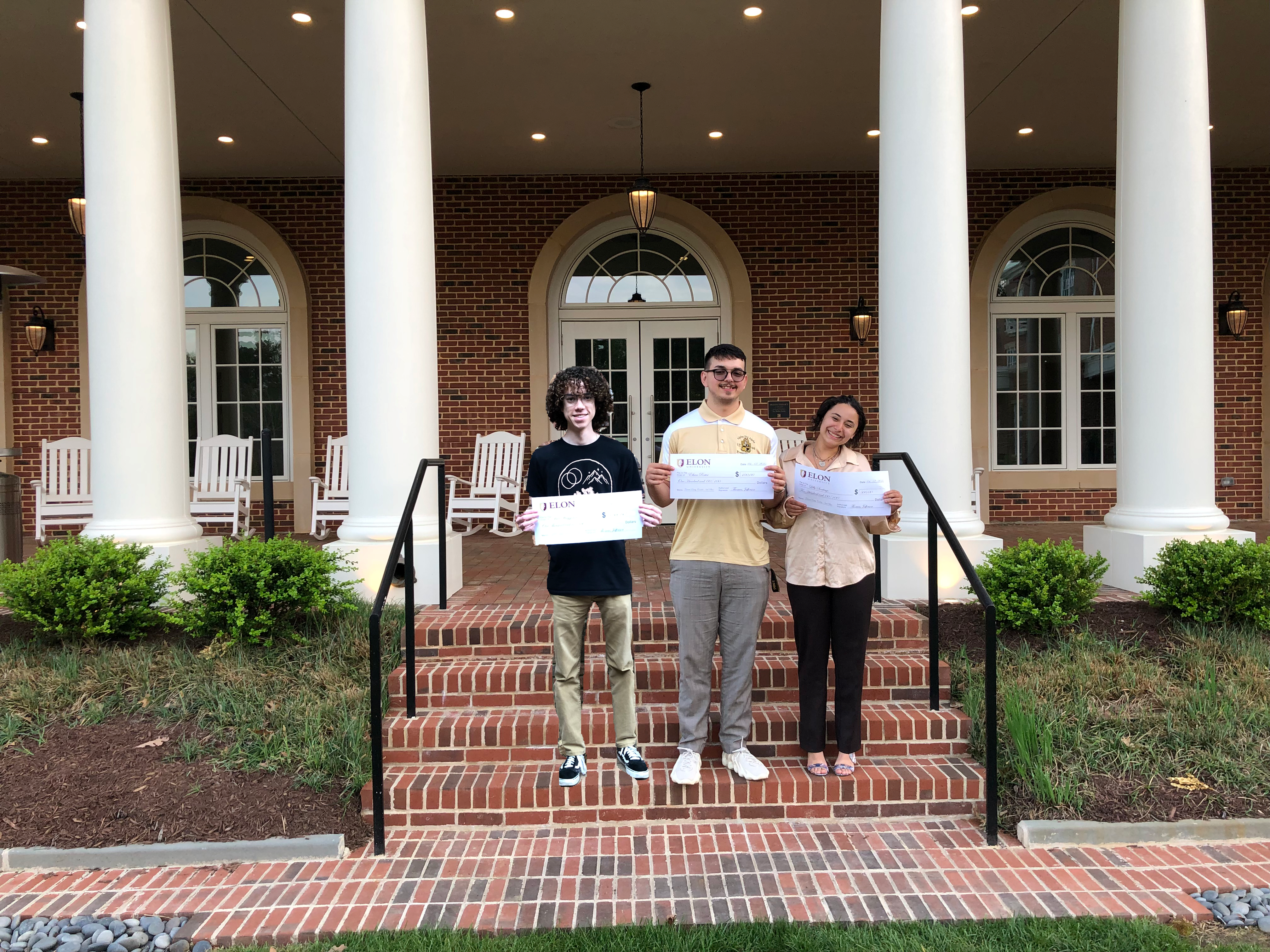The contest, sponsored by the American Studies Program, asked students to address the legacy of Thomas Jefferson in relation to COVID-19 vaccinations.
Elon students Ben Waggener, Lilly Santiago and Ethan Porter have been selected as the winners of the 2022 Philip L. Carret Thomas Jefferson Essay Contest.
The contest, sponsored by the American Studies Program, asked students to address the legacy of Thomas Jefferson in relation to COVID-19 vaccinations. The three winners of the contest, endowed by the late Philip L. Carret, were recognized by the American Studies Committee on April 12, 2022.
This year, students were invited to respond to the following prompt:
Despite being skeptical of many medical practices in his time, Thomas Jefferson embraced experimental medicine in the fight against smallpox, one of the deadliest diseases in human history. As a 23-year-old, Jefferson traveled to Philadelphia and participated in an experimental smallpox inoculation procedure. Later, as president, he defended and promoted the discovery of a smallpox vaccine despite its tepid reception by the public.
Like the smallpox vaccination campaign during Jefferson’s day, COVID vaccinations have had a slow reception in the United States. As of September 2021, 80 million eligible Americans, many of whom embrace Jefferson’s ideals such as democracy, personal liberty and resistance to tyranny, still have not been vaccinated despite the availability of three powerful vaccines. What might Jefferson’s writings have to tell us about why people embrace or resist vaccinations, and what are the similarities and differences between Americans’ vaccination sentiments today and during Jefferson’s time?
Waggener received the first place award for his essay, “Liberty in a Pandemic,” winning the $1,000 prize and an all-expenses-paid trip to Thomas Jefferson’s home in Monticello, Virginia. When asked about how his views on Jefferson might have changed after completing his research, Waggener said, “I was surprised at how Jefferson had a flexible view of the constitution and how he saw the law as a means to an end and not an end in itself. I feel that this is something that people have forgotten today.”
Santiago was awarded second place for her essay, “Jefferson, the U.S., and Vaccination Sentiments Then and Now.” Santiago spoke about why she decided to enter the contest this year saying, “I wanted to catalog the dynamics I have witnessed taking place during the pandemic within the U.S. and comment on how bipartisanism affected the COVID situation here.
“Before researching, I knew close to nothing about Jefferson, and with research, I found I thought of him more favorably. For being a man of his time, he was a futurist, which I respect,” Santiago added.
A second-time Carret Essay Contest winner, Ethan Porter won third place this year for his essay, “The Founding Fathers Believed in Vaccines and 42 Percent of Republicans Can’t Believe It.” This being his third time entering the Carret Contest, he said, “I find it interesting to see how Jefferson continues to be connected to the modern day. This prompt, I felt, was relevant to Jefferson considering his stance on incolutations, then vaccines, while he was alive…I enjoyed looking up various statistics on vaccination rates.”
After being recognized, the three winners were invited to present their essays on Student Undergraduate Research Forum (SURF) Day on April 26. There, they shared their research findings with students, faculty and staff.
The Carret contest is an annual event and will open for submissions during the 2022-2023 academic year! Any questions, about this year’s contest or otherwise, can be forwarded to Erin Pearson, coordinator of the American Studies Program (epearson7@elon.edu).
For more information on this year’s prompt, visit the American Studies Department website.



